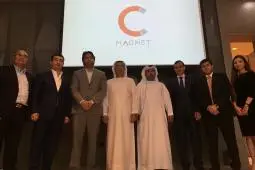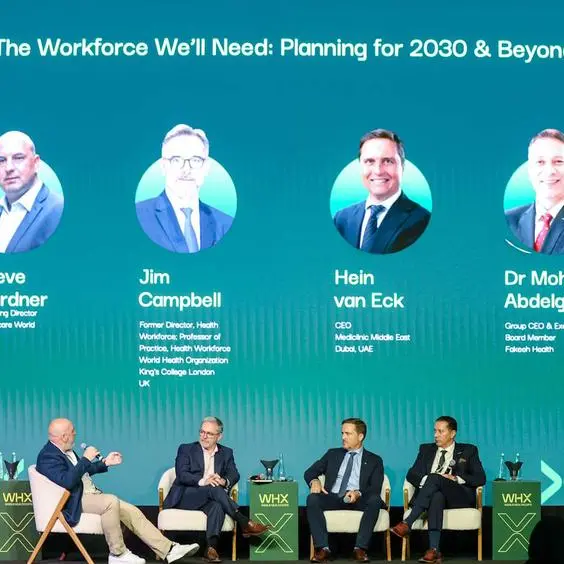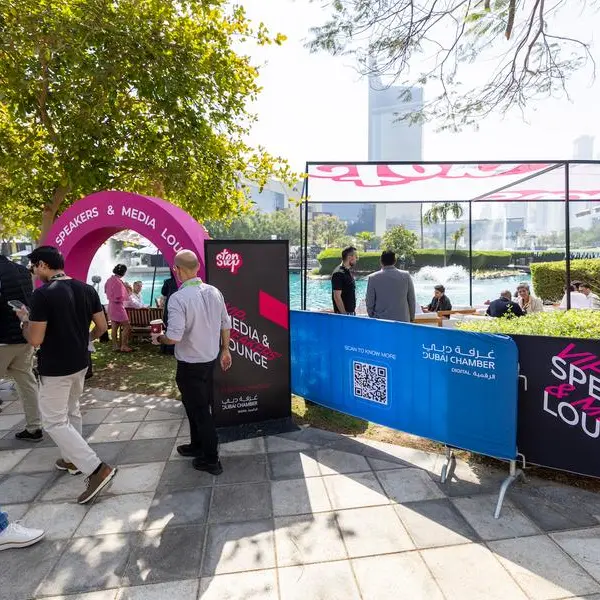PHOTO
DUBAI – April 19, 2017
The steel consumption of the UAE market in 2017 is set to increase by 10 per cent as compared to 2016, while the domestic production capacity to address these volumes is already in place, say members of ‘Magnet’, a UAE-based platform to discuss and disseminate insights on the steel industry.
Key industry stakeholders including Emirates Steel Industries, Conares, Hamriyah Steel and Union Iron & Steel participated in the ‘Magnet’ session held recently in Dubai for the rebar producers. The session covered discussions based on the current steel market outlook, which is very stable in terms of demand and supply. The rise in the number of infrastructure-development projects since the beginning of this year is in line with the strong recovery of economic growth in the UAE.
The market is promising in the next couple of years as we foresee a good demand for our products for the ongoing projects in the UAE, especially the projects related to infra-development to host the World Expo 2020 in Dubai and other announced projects in the region.
Hosting the ‘Magnet’, Mr. Bharat Bhatia, CEO of Conares, the second largest private steel manufacturer in the UAE, said the outcome of the session was very fruitful. All the participating local steel producers were open and transparent on the approach for a strategy to support the ongoing demand of rebars. The Magnet helps to keep the steel market efficient in the UAE, in order to meet the domestic and regional demands, balancing the supply and demand equation.
“The steel industry trends, taking shape this year moving towards the Expo 2020, remain positive with anticipated offtake to increase by the last quarter of this year. Starting from the first quarter of 2018, the demand is foreseen to accelerate by 10 per cent and may reach up to 360,000 per month to support the speed of construction activities,” he added.
Dr. Ramzi Al Halasa, Advisor & Board Director of Hamriyah Steel in Sharjah, said that the market is positive at the moment. “With the current consumption of steel rebars in the UAE, we at Hamriyah Steel, provide 50 to 60,000 tonnes per month. The market is stable in line with the projects coming up to host the Expo 2020. Our vision is to drive the market beyond 2020, targeting projects to support the UAE Economic Vision 2030.”
Mr. Juma Al Mansouri – VP Sales at Emirates Steel Industry, a subsidiary of Senaat, said, “The UAE steel mills are capable to cater to the UAE’s current consumption of 3.5 to 3.6 million tonnes of steel. However, a temporary effect will be seen on the market during the summer and Ramadan due to the slower construction activities during that time of the year. The OPEC’s decision to cut oil production in November 2016 improved oil prices, encouraging the regional governments to increase expenditure on infra-development projects.”
Mr. Omar Al Mashour, General Manager, Union Iron & Steel Company in Abu Dhabi, said, “We are now receiving sufficient support from the Government to protect the local steel manufacturing sector. We are optimistic for the next couple of years with the projects in Dubai, and Abu Dhabi is following the path with mega projects and major infrastructures. Our current annual production capacity is 320,000 tonnes of rebar, and planning to increase it up to 400,000 tonnes per annum. We also are planning to install a welding machine to minimize the wastage and increase production yield.”
“As the UAE establishes itself as self-sufficient in steel rebars, most of the local steel traders now enjoy the economic advantage of sourcing products from UAE-based steel mills that meet their demand and price. Though local mills are unable to show the margins as desired, they support the local traders considering the international market prices and act responsibly while managing the business strategy. Moreover, the locally-manufactured steel products, labelled as ‘Made in UAE’, are more reliable than imports that usually take minimum of 30 days to arrive in the UAE,” Mr. Bhatia further said.
The UAE economy is increasingly diversified and supports large and experienced corporations active in the regional and global markets. A recovery in oil prices coupled with a modest increase in the UAE oil production in 2017 will be supported by a recovery in non-oil related economic activity to boost investment ahead of the Expo 2020. The higher GDP growth between 2017 and 2020 in comparison with the growth in 2016 is combined with growing public and private sector activity boosted by Dubai Government’s preparations to host the Expo 2020.
The recovery, largely driven by real estate, transport and power projects in Dubai, is expected to support an increase in major project spending across the UAE after a year of correctional growth in 2016. Abu Dhabi’s metro and light rail plans and expansion of Al-Maktoum International airport and further phases of Etihad Rail’s federal railway to execute will also contribute to this growth.
Infrastructure developments - either government or private investment spending - remain the main driver that influences the steel demand. When it comes to other factors that influence steel demand in the UAE, liquidity of the private constructions companies and trading companies equally plays an important role in these on-going developments.
-Ends-
PR Contact:
Rasheed Palliyalil
Watermelon Communications
Dubai, UAE.
Tel: 00971 4 2833655
Email: rasheed@watermelonme.com
© Press Release 2017



















